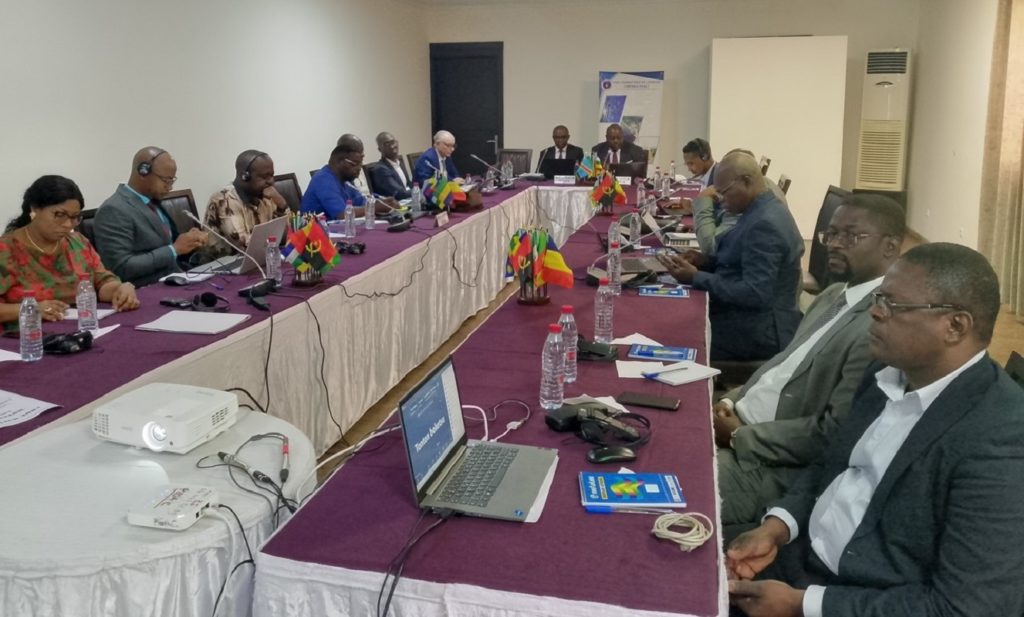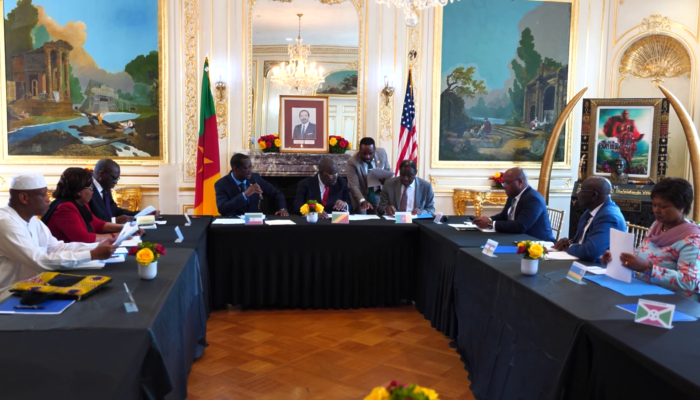The members of the Central African Power Pool (CAPP) management committee examined, on August 16, the Strategic Business Plan (SBP) document for the period 2025-2028. Through this roadmap with a budget estimated at 18.6 billion euros, the CAPP intends to accelerate the implementation of regional electrification projects and the electricity market as well as the training of technicians.
The PEAC 2025-2028 plan is expected to come into effect on 1 January 2025, when the current 2022-2024 work plan expires. After its presentation to the management committee, the document will be discussed at other governance bodies of the institution, before being validated by the Ministers responsible for Energy of the Economic Community of Central African States (ECCAS). ” The document will be popularised for better appropriation by all stakeholders ,” said Atadet Azarak Mogro, the permanent secretary of the PEAC.

This four-year programme provides for a series of activities enabling the realisation of regional electrification projects estimated at around 18.5 billion euros; the strengthening of the capacities of the PEAC, in particular through technical and human resources; the operationalisation of the Regional Electricity Regulatory Commission of Central Africa; the development of a genuine regional electricity market by deepening technical and commercial rules; and the mobilisation of financing for the proper functioning of the PEAC, including regional projects.
A specialized institution of ECCAS, the PEAC is responsible for 41 regional electrification projects, including the Energy Friendship Loop project, which includes the Inga-Cabinda-Pointe-Noire electricity grid interconnection projects, bringing together Angola, Congo and the Democratic Republic of Congo. We can also mention the project to build the Chollet dam, with a capacity of 600 megawatts, on the Dja/N’goko River, straddling the border of Cameroon and the Sangha division.
This new PAS will help consolidate the achievements of the PEAC and especially address the challenges related to access to electricity over the next four years, stressed Rigobert Gbazi, the head of the technical department responsible for electricity at the PEAC. But finding the necessary funding to carry out the projects is another matter. The energy pool can nevertheless count on the World Bank, which is committed to supporting the implementation of the program, as well as the African Development Bank, the European Union, the French Development Agency, the German cooperation GIZ, not to mention the contribution of member states and private investments.
It should be noted that this extraordinary session of the management committee was also devoted to examining the PEAC audit report for the 2023 financial year. Indeed, the auditor Moore Stephens CA gave a favorable opinion on the financial statement, accompanied by a recommendation on the programming of expenses in connection with the PEAC accounting framework. This favorable opinion of the auditor reinforces the reforms carried out within the PEAC and strengthens the image of the institution with its technical and financial partners.
A new horizon opens for the PEAC created in 2003, with the aim of implementing the energy policy, studies and construction of community infrastructures, as well as the organization of exchanges of electric energy and related services in the community space. ” Our ambition is to boost the activities of the PEAC in the image of other energy pools on the continent ,” Rui Pereira Do Amaral Gourgel, the chairman of the management committee, who is also the chairman of the Board of Directors of the National Electricity Company of Angola said






